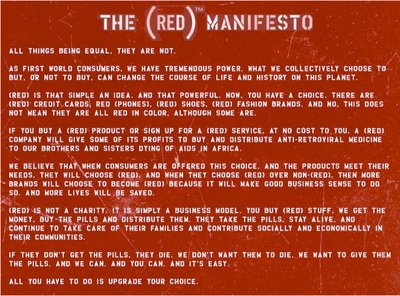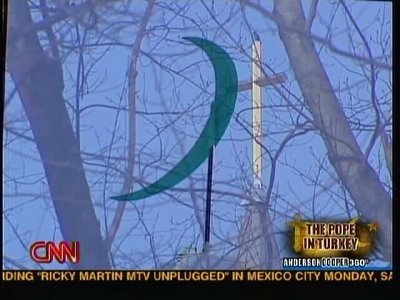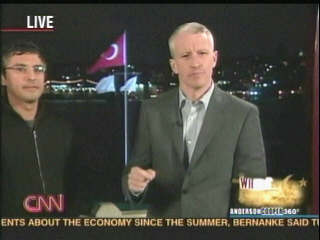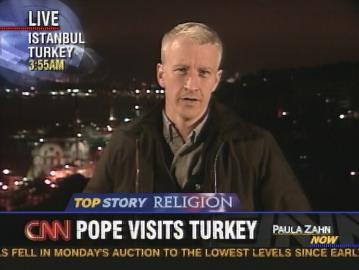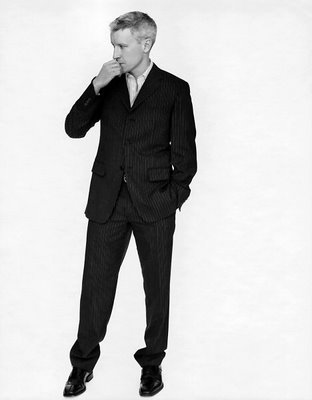I'm Sick and Tired of All of It
Finally, someone has been asking the question that I've been wondering about for many months...what the hell is the difference between "a civil war" and "sectarian violence"? Is one a war that is being fought with manners and the other is a bunch of secretaries on a rampage? Because on the evening news or any newscast for that matter, they sure as hell don't know the difference either.
Good people are dying in Iraq everyday. Iraq is averaging a loss of over 3,000 civilians each month. The coalition forces can't control the violence and the Iraqi government doesn't seem to care, with their own police forces accused of horrible acts of violence, and the US on the ground to continue their dirty work.
I'm sick and tired of watching the news to find another car bombing, another 40 people dead is just another day in Baghdad. I'm tired of hearing about the Round Table. They aren't a bunch of knights on white horses riding in to save a village. I'm tired of the political talks between grown men and women who act as if these people and this country are nothing more than pawns on their political chessboard.
I'd like people in the news to step up and grow a pair. Call the situation what it is...an out-of-control civil war with no resolution in sight. I know guys, if you actually report the news and don't spin it just right, you'll lose that invite to the Foreign Correspondents Dinner at the White House. I forget my priorities, excuse me.
Sick and tired people, sick and tired.
From the Huffington Post:
NBC's decision on Monday to actively label the violence in Iraq a "civil war" triggered a rush by other media outlets to weigh in on the term and the relative merits of its use and non-use. Matt Lauer said that "armed militarized factions fighting for their own political agendas" fit the bill; White House spokesperson Tony Snow said that, no, it didn't, because this was "sectarian violence that seems to be less aimed at gaining full control over an area than expressing differences," which certainly helped clear things up. Since then, media organizations have rushed into the breach to furiously debate which label to use, creating the biggest story this week with the smallest amount of something actually happening.
Congratulations! Below, we look at who's using which label in this ongoing, um, "continuation of politics by other means":
* NBC: Lauer explains further: After "much careful deliberation..." Label: "Civil war," dammit. MSNBC thinks so, too!
* Fox News: "Civil war" is a euphemism for "failure of US policy." "We're unwilling to fall into that tender trap." Plus, non-Iraqis are involved — which is why there was never a Spanish Civil War, right? Label: Anything but "civil war," which wouldn't be so bad after all.
* Washington Post: "We just describe what goes on everyday. We don't have a policy about it." Though they will use the term "close to a civil war." But they don't have a policy about it! Label:"Sectarian violence," in print; "Absolutely the level of violence equals a civil war" when Dana Priest is on Chris Matthews.
* Katie Couric: "Just what makes a civil war? Scholars say...at least a thousand people must have died, at least 100 from each side." You don't need to be a scholar to know that that's the case in Iraq. Even so... Label: None. Way to straddle that fence, CBS.
* Reuters: "So whose arguments hold more weight?" Label: "Civil war," with citations.
* Financial Times: "The civil war in Iraq is likely to deteriorate..." Label: A "disingenuous" "civil war" full of "failures" with no "silver bullet." (Zagat rating: 23.5)
* USA Today op/ed: There is mayhem, therefore there is war. Label: "'Civil war' doesn't begin to describe the chaos in Iraq"
* CNN: Divided, says the Media Matters blog, quoting correspondent Michael Ware: "You dare to go out and try to go to work or, indeed, shop at a marketplace and you will know that this is civil war." Label: Ware: "Civil war." Correspondent Bob Franken: "Sectarian war." Anderson Cooper: "Sectarian violence." Chyron: "Civil War?"
* Associated Press: Still debating, says the Guardian. "There are different views in the newsroom." Label: "We don't preclude saying civil war in our copy, if a correspondent thinks it appropriate. But we don't want to go out and declare it a civil war." Yes, because whether or not its a civil war is completely up to you.
* New York Times opinion page: "At this point it is hard to tell who is more out of touch: President Bush, who continues to insist that Iraq has not descended into civil war..." Label: "Civil war." But more importantly, Bush is now "the demander."
* Thomas Friedman: "Here is the central truth about Iraq today: This country is so broken it can't even have a proper civil war." (But give it 4-6 months...) Label: "So many little pieces." All of which are flat.
* L.A. Times: "The Times was the first major news organization to formally adopt the description when it began to refer to the hostilities as a civil war in October, without public fanfare." The Times was also the first major news organization to smugly point this out. Label: "Civil war," four times a day.
* Dan Froomkin:"It's a Civil War, Stupid!" (See lede: White House, he's talkin' to you.) Label:"Civil War," stupid.
* Daily Show: "The phrase 'civil war' conjures horrible jaw-dropping images of bloodshed...no one needs that image." Label: "Ongoing scuffle between sectarian groups." No, "the internal sovereignty challenge." No, "the faith-based melee." Because why choose just one?

